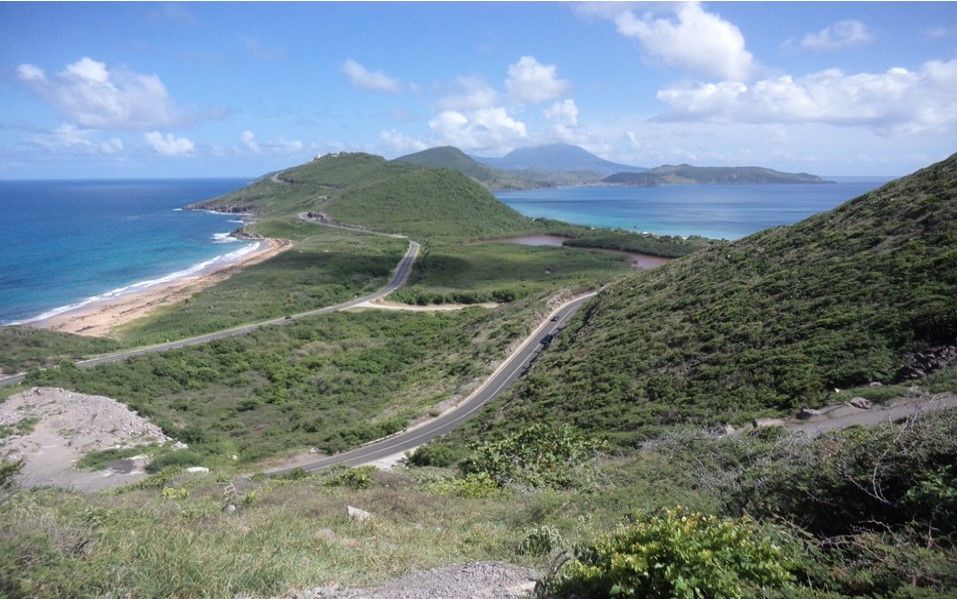St. Kitts and Nevis launches Green Climate Fund project to enhance Caribbean CSOs’ access to and readiness for climate finance
Media Release Courtesy the Caribbean Natural Resources Institute (CANARI)
The Government of Saint Kitts and Nevis – Department of Economic Affairs and Public Sector Investment Programme (PSIP) and the Caribbean Natural Resources Institute (CANARI) were pleased to announce the national launch of the project, “Enhancing Caribbean civil society’s access and readiness for climate finance”, on October 22, 2020 at the Innovation Hub, National ICT Centre in Saint Kitts.
The project aims to build the capacity of civil society organisations (CSOs), including national nongovernmental organisations, community-based organisations and resource user groups such as farmer and fisherfolk associations and cooperatives, to access and deliver climate finance and build climate resilience in the Caribbean.
It will enhance CSOs’ knowledge, skills and organisational structures, and strengthen institutional mechanisms to enhance civil society voice and participation in climate change decision-making nationally and regionally.
It is being implemented by CANARI and national designated authorities across the Caribbean Community (CARICOM) Member States, including the Department of Economic Affairs and PSIP – Ministry of Sustainable Development in Saint Kitts and Nevis, from February 2020 to August 2022. The project’s scope includes the CARICOM region, with targeted activities in Antigua and Barbuda, Belize, Grenada, Jamaica, Saint Kitts and Nevis, Saint Lucia and Suriname.
The project is funded by a US$1.29 million grant from the Readiness and Preparatory Support Programme of the Green Climate Fund (GCF), which is a global funding mechanism under the United Nations Framework Convention on Climate Change (UNFCCC) that supports climate change adaptation and mitigation in developing countries.
Senior Project Analyst, Department of Economic Affairs and PSIP, Mr. Auren Manners, noted that the Government of Saint Kitts and Nevis is committed to inclusion and partnership in the advancement of its development agenda and that the importance of CSOs in national development cannot be overstated. In particular, he welcomed the GCF’s support and noted that,
“The Saint Kitts and Nevis national designated authority pledges its full support to the successful implementation of this initiative to ensure that our national and regional CSOs emerge better prepared to engage in national development agenda planning, implementation and monitoring; accessing climate finance; developing climate change interventions; and training new CSOs to build knowledge and capacity to further scale-up the interactions with the GCF and other climate finance mechanisms.”
He also thanked CANARI for their ongoing support in implementing this first readiness initiative in Saint Kitts and Nevis to improve access to the GCF.
CANARI Senior Technical Officer and Project Manager, Dr. Ainka Granderson, highlighted that,
“As we celebrate the International Day of Climate Action this week, it is important to recognise the need for civil society leadership. CSOs in Saint Kitts and Nevis and the wider region are well positioned to lead bottom-up approaches that achieve impact on the ground for vulnerable communities and their livelihoods, but their efforts are often small-scale and piecemeal as they lack the necessary funding and technical assistance. Mobilising funds from GCF and other climate funds to better support CSOs and channel resources to the most vulnerable is key in building local resilience.”
Dr. Granderson welcomed the collaboration with the Department of Economic Affairs and PSIP and local CSOs to make this a reality in Saint Kitts and Nevis.
For more information on the project, see: https://canari.org/csos-ready-for-climate-finance
Photo: Saint Kitts and Nevis. PHOTO BY DR. AINKA GRANDERSON.
__________________________________________________________________________________
About the Department of Economic Affairs and PSIP:
The Department of Economic Affairs and PSIP – Ministry of Sustainable Development is charged with formulating and implementing the public sector investment programme to promote sustainable socio-economic development, poverty reduction and resilience in Saint Kitts and Nevis. It serves as the national designated authority and focal point to the GCF, which is the largest global funding mechanism that supports climate change adaptation and mitigation in developing countries, and other climate funds. See here for more information: https://www.gov.kn/
About the Caribbean Natural Resources Institute (CANARI):
The Caribbean Natural Resources Institute (CANARI) is a regional technical non-profit organisation which has been working in the islands of the Caribbean for over 30 years. Our mission is to promote and facilitate stakeholder participation and stewardship of natural resources in the Caribbean. Our work focuses on Biodiversity and Ecosystems, Equity, Participatory Governance and Resilience. See here for more information on CANARI: http://www.canari.org/

